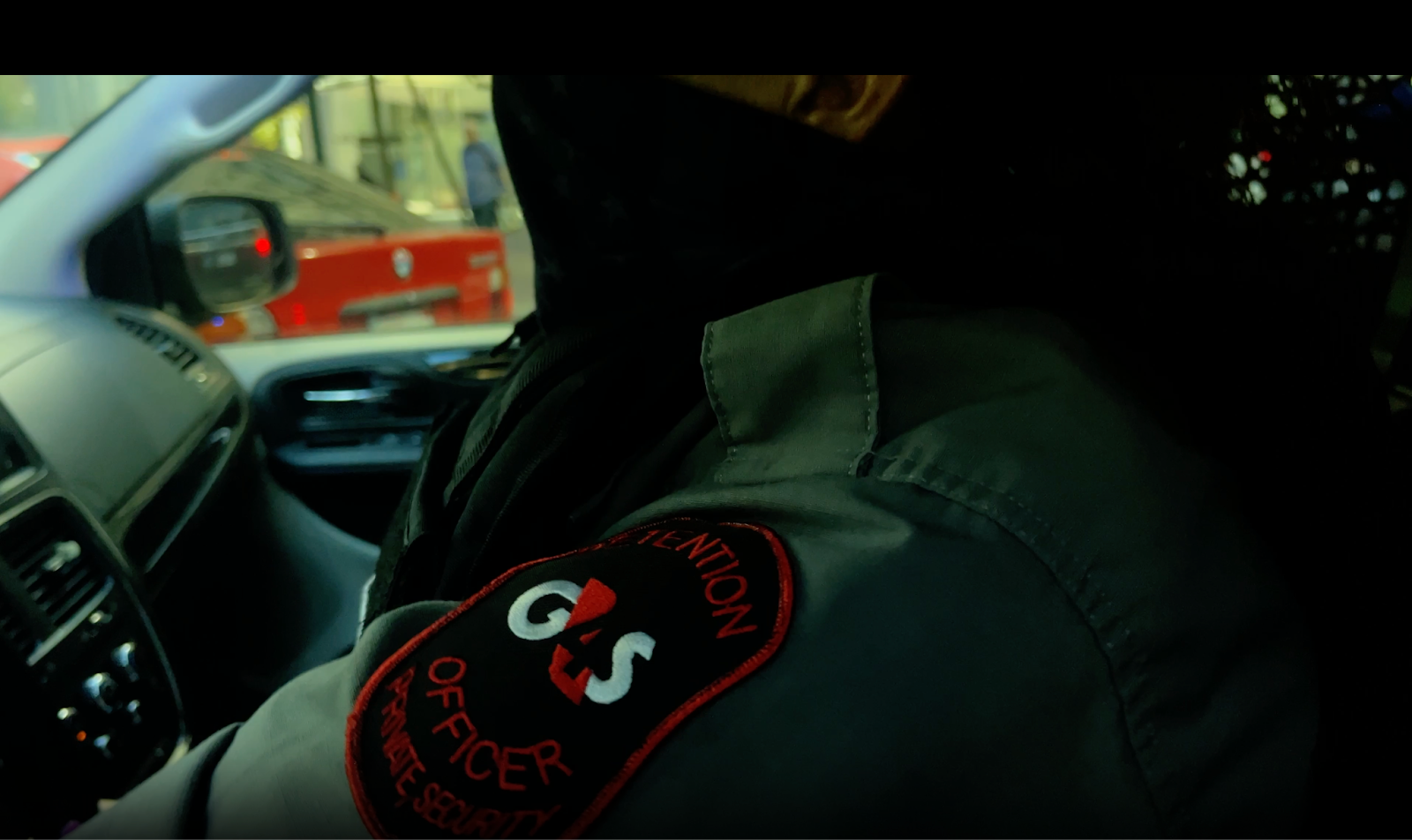I was assured by the hosts that sound would be handled. This was a relief. The in-house audio setup at Tamarack is finicky—distasteful distortion, cutting out in the midst of e.g. Clark Coolidge reading his correspondences with Bernadette Mayer. Though I’m one of the weekly series’ 200 hosts, I was to be an audience member tonight. I could comfortably fall away into “listening”—into the crowd and its anxious laughter when the sound goes wrong; into myself as the reader’s voice accompanies my focus drifting over there, to the draping of a nice shirt over nice body; back into the poetry as a phrase gets repeated, a nice one; into the phrase; what were the words between the refrains? Well, so-and-so had a nice shirt on.
I arrived late and ascended the stairs. Still in the stairwell, unable to see the room, I heard a synthetic chipmunk addressing the room, high-pitched with a digital delay. I emerged to see that the chipmunk was in fact Violet Spurlock, and Kevin Lo, and several others inquisitively hovering around a karaoke rig. Someone tweaked a setting, the vocal pitch became normal, but a persistent echo remained. Test-test-est-st-t. Check-check-eck-ck-k.
Good enough.
As a material phenomenon, echo conveys space, surface. Its affective imprint is that of loneliness. In this stuffy, crowded upstairs, the effect is misplaced and thus really, really funny.
Stevie Redwood kicks things off, trying the mic but attention is on the echo, not the words. They decide to abdicate the mic and read work that is in equal measure militant, hilarious, and devastating. They remind us that the struggle in Palestine continues, share poems that register the immense loneliness of being witness to atrocity, no echo needed. Tatiana Luboviski-Acosta regales us with prose about 70s/80s Valencia Street lesbians, an echo of Sandinismo. We’ll return to this. Trinh Lê reads poems whose sapphic depth traverses the surreal (others’ teeth) and the playful (“Descent of girlette,” Notley nod). The latter, if memory serves, featured a line about “girls undercover,” or was it “under cover,” oh that’s the point, right. Undercover girls under covers—the elision within the phrase neatly condenses gender anxiety, pleasure, and police logic, and aren’t these the basic forces at play in the history of the Compton’s Cafeteria riot, the ostensible reason we are all here tonight?
The reason we’re all here tonight: the fight to liberate Compton’s today, 59 years after the riot. A member of the Compton’s x Coalition collective takes the stand to give us a brief history, and, contra the poets who had abandoned amplification, opts to use the mic. The echo is back.
111 Taylor, the site of the titular riot, is now a “reentry facility” (essentially a halfway house) operated by GEO Group. GEO Group is a private prison corporation best known for operating ICE facilities across the nation. The conditions at those internment sites are predictably nightmarish. This holds for 111 Taylor as well, where the death of resident Melvin Bulauan last month brought further attention to the facility. The irony that Neo-Gestapo Inc. operates a prison out of a building that was once a gathering-place, then a rioting-place, for Tenderloin queens makes it a potent and viable target for protest—one that proposes trading dystopia for utopia.
Turn up the reverb:
GEO Group itself was originally a division of the notorious Wackenhut Corporation; Wackenhut is long alleged to be a front for FBI/CIA covert operations, supporting the Contras and right-wing death squads in their repression of—remember Tatiana’s reading?—the Sandinistas in Nicaragua; today, Wackenhut is known as G4S Secure Solutions, private security who we recently saw assisting in ICE abductions in downtown San Francisco.

International arms trafficking, destabilization of nations in the Global South, enforcement of the hierarchy of citizenry and border rule—but also the first trans riot in the US, a place where liberation could be imagined again: this is the history that reverberates within 111 Taylor. One does not need to listen closely to hear the notes of conspiracy rebounding, and it’s not just because the reverb is cranked. A voice sounding beyond the body, traces of its origin ricocheting off the walls before fading into obscurity—the karaoke machine is just giving ersatz form to the vast conspiracy of capital! Duh. We gather to learn about the fight to shut down one company’s contract to operate out of a historic building, and suddenly the whole of American planetary power echoes all around us.
Fall too far into the chasm of conspiracy, though, and it gets lonely. The echoes are a siren song, luring us into a state of isolation, disorientation, and powerlessness.
The antidote is obviously to come together, pick concrete targets, and struggle against them. C x C is doing precisely this. Did poetry aid in doing so tonight? It certainly brought people together, but this step is useless without the proceeding steps occurring in tandem. Poetry served as amplification, helping the struggle to reverberate beyond the niche spheres of activism. Others will carry out the rest. Now that the message has been received, perhaps poets will be among them. Perhaps they will engage in extrapoetic activities.
The reading slash history lesson wrapped. Some stuck around Tamarack to hang out with communists. Most left. See you see you nextnext fridaydayday.
